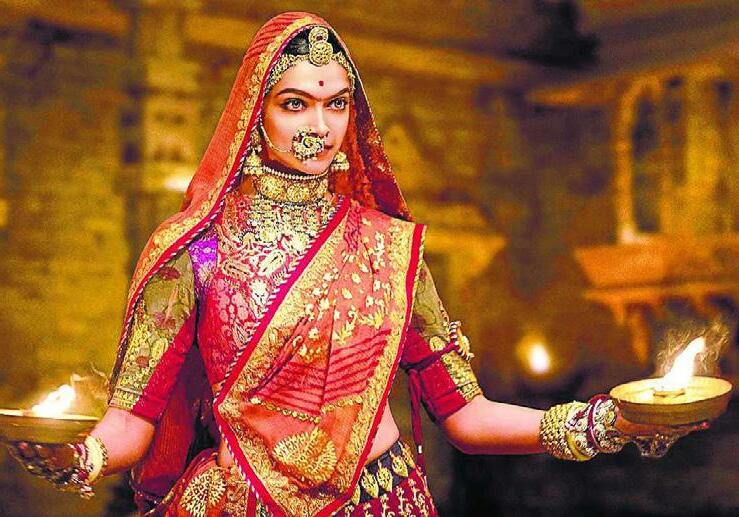
5 minute read
cine TALK Section 18C A protection we cannot afford to lose
from 2018-02 Melbourne
by Indian Link
A Breathtaking Homage To Valour Of Rajputs
Australians value freedom of expression but laws against hate speech are still essential
A flourishing society also requires more than just freedom of speech; it requires security, stability, a just legal system and a vibrant economy.
BY mATT KeAN
Australia is a country of great diversity. You can see it in the faces of the people that you work with. You can see it in the restaurants that line the main streets of our towns. And you can see it in the variety of religious and cultural events celebrated around the country: Chinese New Year, Diwali, Hanukkah, Ramadan and Christmas to name a few.
feeling to their parts. Though they sing the same song from different scales, they are like the earth and sky never destined to meet.
Bhansali imparts a portentous potency to their conflict. Without coming face-to-face, the two actors convey an almost-unbearable dramatic tension.
A flourishing society requires more than just freedom of speech; it requires security, stability, a just legal system and a vibrant economy
The climax with all of the Rani’s female entourage fighting off the advances of Khilji by hurling hot coal bricks on him, is a reverberant homage to Ketan Mehta’s Mirch Masala
That is why freedom of speech is not absolute. In this country, it is criminal to disclose secrets which risk the lives of Australian soldiers. It is likewise a crime for a corporate executive to disclose market sensitive information to his mates. The law protects us from slander and protects privileged comments made to our lawyers.
Remember Naseruddin Shah’s moustache-twirling subedaar in Mehta’s film lusting after the feisty Sonbai (Smita Patil)? Bhansali’s Padmavati echoes Sonbai with heartening whoops of joy. The sequences at the end of the film featuring Deepika Padukone and a bevy of women all wearing flaming-red, will stay with you for a very long time.
However, the treatment of the Aboriginal peoples in this country stands as a chilling reminder that tolerance has not always been embraced. The Cronulla riots similarly reminds us how quickly what we have achieved can be put at risk.
As a society, we recognise that these restrictions do not hurt our democracy or way of life. Indeed, we understand that they are necessary to maintain it. And laws against hate speech are no less necessary, because racism and bigotry tear at the heart of our social fabric.
Padukone as the royal queen who ends up being the second wife of a neighbouring empire. A similar fate awaits Deepika in Padmaavat

While the conflict between the two wives in Bajirao Mastani was conspicuously contoured, in Padmaavat Deepika’s Padmaavati barely manages to interact with her husband’s first wife (played by Anupriya Goenka).
I am afraid Shahid Kapoor as Padmavati’s husband seems a little shaky in his attempts to counter Ranveer’s psychotic Khilji with regal restraint. He internalizes his character’s struggles to an extent where he looks bored at times.
The proposed amendments to Racial Discrimination Act were put forward on the basis that the current wording of Section 18C inappropriately constrains our freedom of speech.
It is Padmavati’s conflict with her invader and intended violator Allauddin Khilji which occupies centerstage in this rigorous drama of resonant historicity.
On many occasions the historical facts are tampered with for the sake of edifying the essential conflict between the Queen and her invader.
Deepika Padukone and Ranveer Singh bring an exquisite operatic duet-like
That section makes it unlawful to do an act in public which “is reasonably likely… to offend, insult, humiliate or intimidate another person or a group of people” if “the act is done because of the race, colour or national or ethnic origin of the other person”.
There is no doubt that freedom of speech is important but it is important because of the role it plays in our democracy. Freedom of speech ensures that when you or I go to the ballot box we can make an informed decision about who to vote for.
Racism and bigotry leave people feeling exiled in their own home. They do not improve the quality of public debate nor do they assist the wise completion of a ballot paper. They are insidious because they attack a person because of their identity; their heritage. They imply that a person is inferior because of who they are. They are hurtful, divisive and can lead to individuals and entire communities feeling unwanted, unvalued and second-class.
But there is no dearth of bravura in Padmaavat. While Ranveer and Deepika as antagonists rip the screen part, two other actors Jim Serbh and Aditi Rao shine in smaller roles bringing to their part as Khilji’s manipulative toy-boy and idealistc wife, a strong sense of a backhistory that belies the length of their roles.
Padmaavat is a work of illimitable splendour. The 3D format seems quite an unnecessary grandeur-enhancement device. When we already have so much to savour and imbibe, why hanker for more?
As a society, we recognise that restrictions on free speech do not hurt our democracy or way of life. Indeed, we understand they are necessary
Subhash K. Jha
Comments today can also revive memories of past wrongs. Unfortunately, few ethnic groups have been spared the pain of racially justified persecution. Examples such as slavery in the United States and the Holocaust are well known. In recent times, the world has seen genocides in Rwanda and Bosnia, while today in North Korea persecution is justified by racial supremacy.
our social fabric
Freedom of speech is necessary so that as a community, we can debate political ideas and so that individuals can have a say on decisions that affect them.
Section 18C ensures that everyone has a role to play in that debate.
Together, we have built a vibrant, rich and diverse society. A society not focused on the differences between us, but founded on the strengths our differences afford us. Section 18C stands, not as a threat to freedom of speech, but as a protector of the purposes which that freedom serves, and as a guard to an achievement exceptional in this time and rare in times before.
Matt Kean is the Member for Hornsby and

Parliamentary Secretary for Communities.
Kaalakaandi
CAST: Saif Ali Khan, Akshay Oberoi, Isha Talwar, Sobhita Dhulipala, Kunal Roy Kapoor, Vijay Raaz, Deepak Dobriyal, Shivam Patil, Shenaz Treasurywala, Nary Singh
DIRECTOR: Akshat Varma.
HHHHH
And as the title suggests, right from the first frame, we are reminded that nothing can go right for its characters. What makes Kaalakaandi interesting, though, is its dark comedy, easy to relate situations and characters. It is one of the easiest films to love and one of the hardest to think of as a work of art. It approaches the notion of pure filmmaking as entertainment. It lacks, a lesson or message and is content to show three sets of people facing a series of interlocking challenges they face one night.

Set in Mumbai, with a variety of quirky characters awake after midnight, it reflects the unpredictable life in the city. But they seldom find themselves intertwined in a bizarre series of coincidences.
Boldly told, what happens to the characters apart from the nightmarish and bizarre nature of their experiences can only be described as screwball logic.
While the plot unravels like the pages of a thriller, the humour seems laboured. You witness this in the first scene and in the climax.
In the opening scene, Saif Ali Khan is in his doctor’s clinic where his doctor






